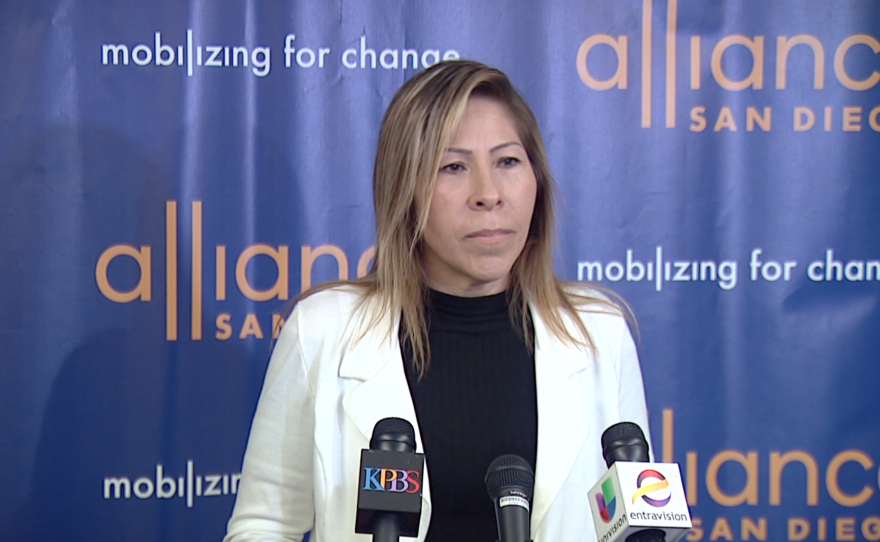UPDATE: 1:54 p.m., May 18, 2017
An international human rights commission said Thursday it has officially opened a case to look into allegations of abuse against a Mexican immigrant in 2010 at the San Ysidro Port of Entry. Only about 15 percent of the complaints filed before the Inter-American Commission on Human Rights are opened for processing.
Original Story
An international human rights commission has asked the U.S. government to respond to allegations that it violated the human rights of a Mexican immigrant in 2010 at the San Ysidro Port of Entry.
Anastasio Hernandez Rojas died after customs and border officers repeatedly shot him with a Taser gun. The San Diego County Medical Examiner ruled the death a homicide.
Related Link: Five Years Later, Family Still Demanding Justice In Taser Death At The Border
“We are alleging that the United States is not only responsible for the killing but that federal agents tortured Anastasio, that the United States obstructed justice and failed to adequately repair the damages that it caused through its actions and inactions," said Roxanna Altholz, an attorney for the family.
Hernandez had been living in San Diego for about two decades but had been deported. He was detained after trying to cross the border illegally, and agents said he was being difficult. Cell phone video captured by witnesses shows him lying on the ground, crying for help as he is repeatedly shot with the Taser.
Since the incident, his family has been trying to get the U.S. government to admit fault, with no luck in federal courts. The Department of Justice declined to prosecute in 2015, citing insufficient evidence.
But the family is now getting help internationally — from the Inter-American Commission on Human Rights. The family filed a petition with the commission last spring and was notified earlier this month that the commission was going to look into the complaints. The U.S. government has three months to respond to the allegations.
“It was news that really lifted my spirits," said Hernandez's widow, Maria Puga. "But I’ve never lost hope that the truth will come out, for the government to recognize its agents are guilty.”
If the commission were to find the U.S. at fault, it could ask government agencies to implement legal and judicial reforms to ensure similar violations are not repeated.
Earlier this year, a federal judge green-lighted the U.S. government's $1 million settlement for Puga’s children. But Puga said that is not enough. She wants the government to admit fault in hopes this will never happen again. At least 50 people have been killed in incidents with Border Patrol agents since 2010, according to the Southern Border Communities Coalition.








